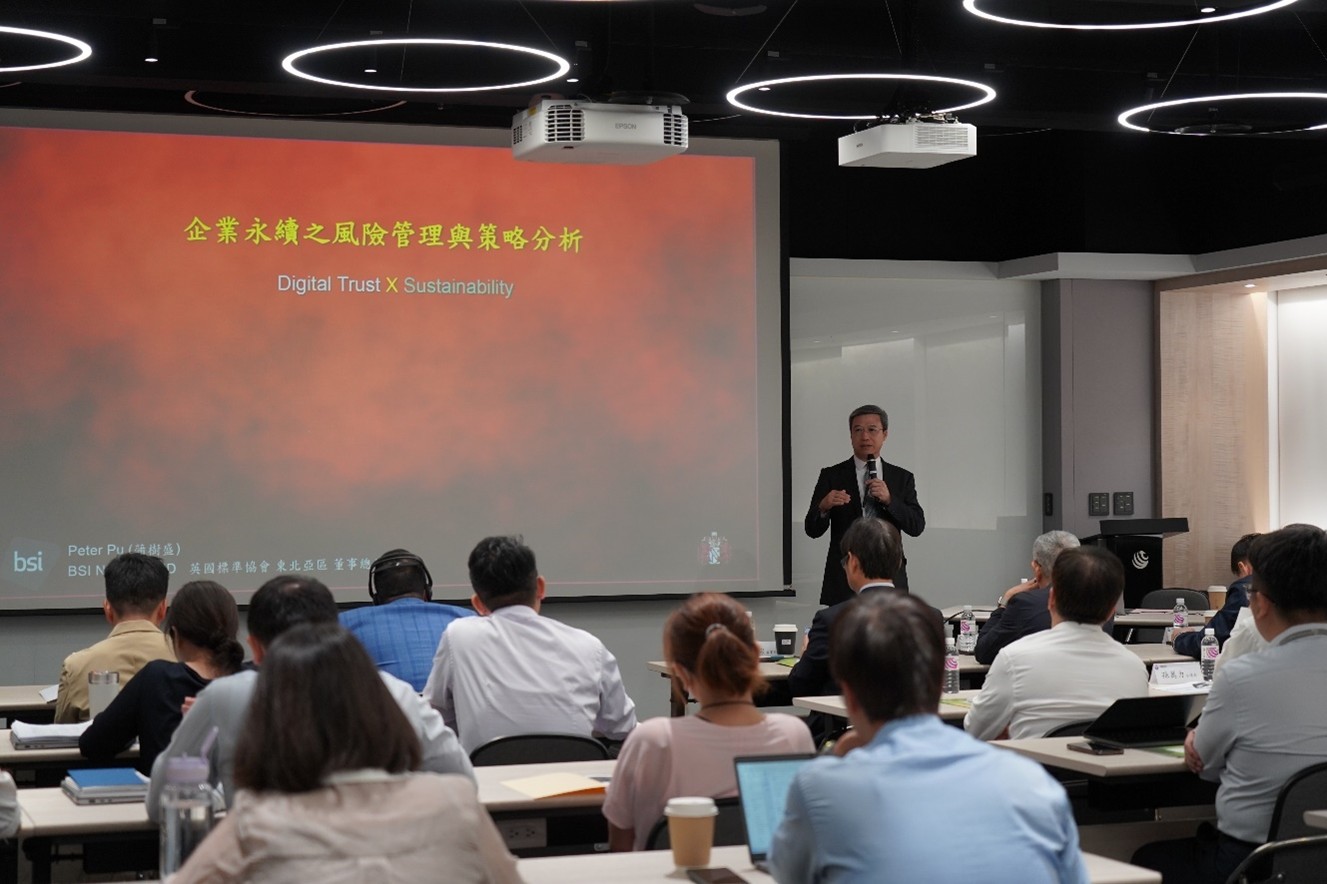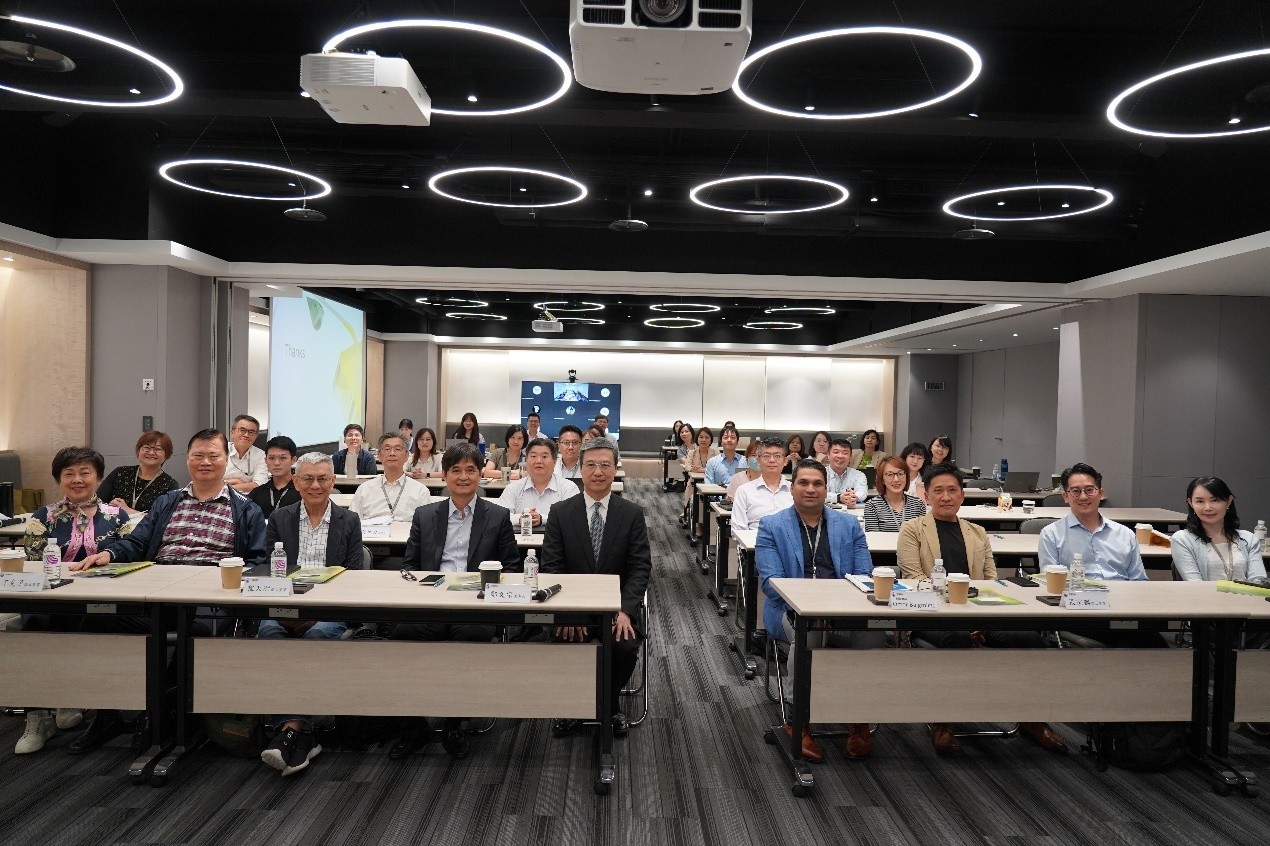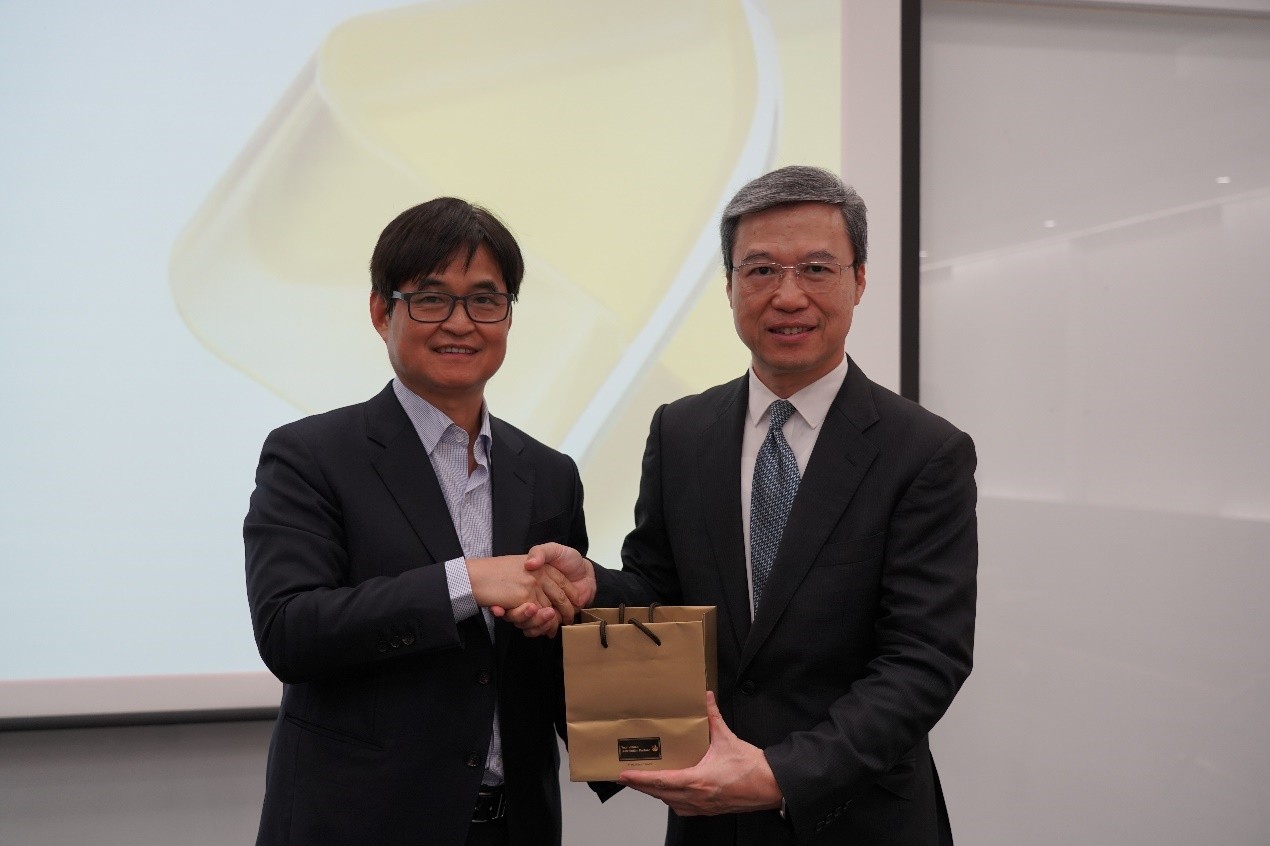In the face of current global uncertainties, business operations are confronted with increasingly complex and diverse risks. Managing Director for Northeast Asia at the British Standards Institution (BSI), Peter Pu, in his lecture "Risk Management and Strategic Analysis for Corporate Sustainability" emphasized that the core of sustainable development is defined by the United Nations as "development that satisfies the needs of the present without compromising the needs of future generations." This is not just a slogan for environmental protection, but a balanced approach encompassing the environmental, social, and economic dimensions.
Managing Director Pu noted that the maturity of enterprises in understanding sustainability progresses from initially viewing it as a mere cost and burden, then to passive compliance with regulations, to elevating it to integrating sustainable concepts into products, services, and daily operations, and finally reaching the highest level of creating new business models and value with sustainability at its core. Only by continuously advancing through these stages can enterprises uncover new business opportunities amid challenges. However, the current global challenges of climate disasters, erosion of social trust, and widening wealth gaps are severely threatening the survival of future generations, making it imperative for enterprises to address sustainability issues in earnest.
According to the 2024 World Economic Forum (WEF) report, the five major global risks in the short term (two years) primarily include AI-generated misinformation, which has topped the list for the first time, increasingly frequent extreme weather events, escalating geopolitical tensions and societal polarization, and pervasive cyberattacks and security threats. If the timeframe is extended to the next ten years, environmental risks dominate, encompassing the failure of climate change mitigation and adaptation, natural resource crises, and severe loss of biodiversity. This indicates that environmental issues will be humanity's most severe challenge, and the impacts they cause, such as supply chain disruptions and operational shutdowns, will directly affect enterprises' financial performance and survival.
Facing risks, enterprises should not merely regard them as threats but should also seek to transform them into strategic advantages. This begins with establishing a top-down, outside-in systematic risk governance framework that entails a comprehensive mechanism for identification, assessment, and response to analyze risks of global macroeconomic and the company's own operations. At the same time, the global carbon pricing mechanism has become an undeniable trend. Companies must incorporate anticipated carbon costs into their financial planning. For example, leading benchmark enterprises have successfully turned high carbon-cost risks into a competitive edge by proactively investing in renewable energy and optimizing their global footprint. Moreover, embracing international standards is essential for enhancing operational resilience. The focus of ISO 14001 (Environmental Management) has evolved from pollution prevention to carbon management, while ISO 45001 (Occupational Health and Safety Management) has expanded from traditional industrial safety to also address employee mental health, diversity, equity, and inclusion (DEI). Together, these elements have become indispensable pillars of corporate governance.
Managing Director Pu also emphasized that sustainability is not only a responsibility but also a potential for business opportunities. In the context of the low-carbon transition, the substantial energy consumption driven by AI computing has created strong demand for high-efficiency heat dissipation, low-power semiconductors, and energy storage solutions. Within the supply chain, green procurement has become a prevailing trend, and in the future, suppliers' ESG performance will serve as a "pre-screening" criterion for customers when selecting partners. Companies that excel in reducing product carbon footprints and contributing to environmental sustainability will secure a more competitive position. Furthermore, the concept of a circular economy offers boundless opportunities. For instance, converting agricultural waste into energy not only addresses pollution but also enables the acquisition of carbon credits, generating additional value.
An enterprise's journey toward sustainability ultimately depends on the shaping of its culture and it is a gradual process which begins with continuous education and training to build consensus, followed by well-designed mechanisms to guide behavior, and ultimately leads to embedding sustainable thinking deeply into every employee's mindset-making it an intuitive part of daily decision-making. At this stage, the enterprise truly gains the "self-adaptability" needed to face the future.



